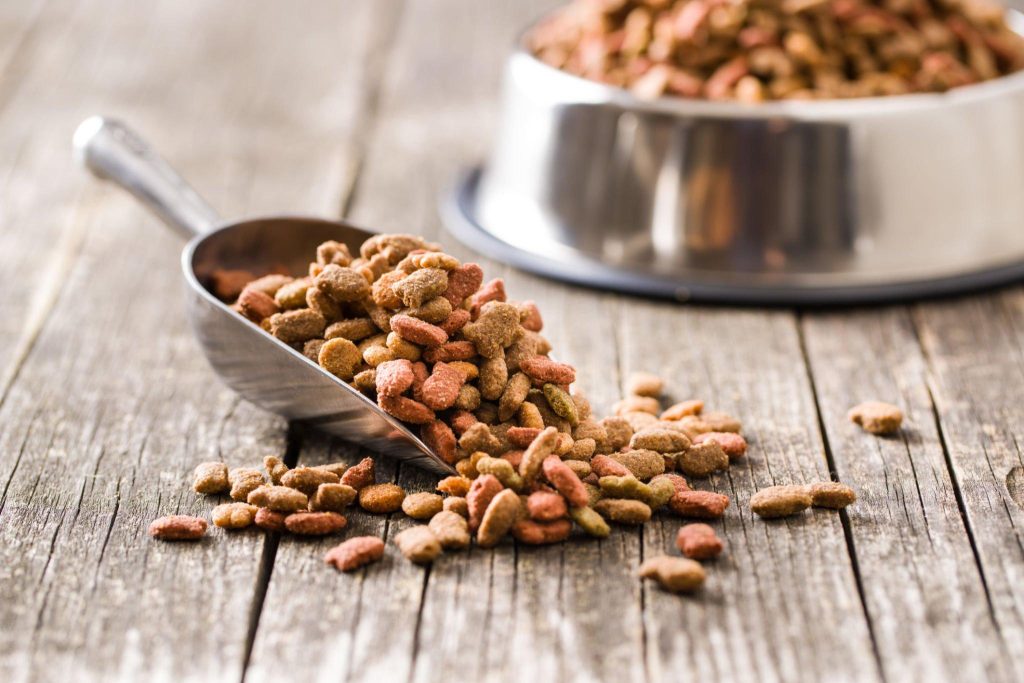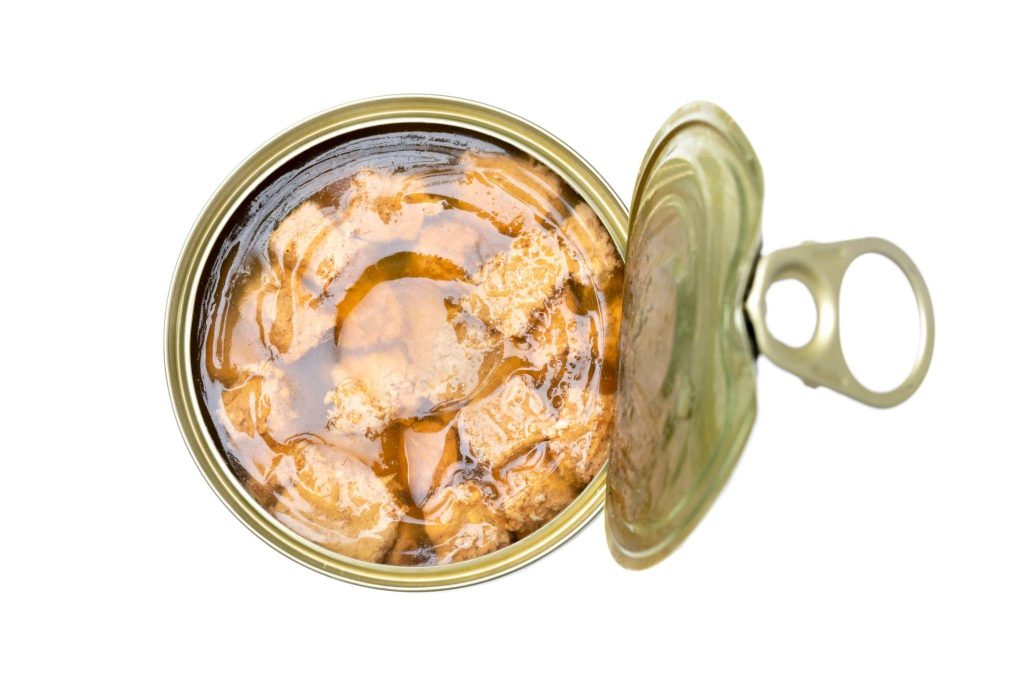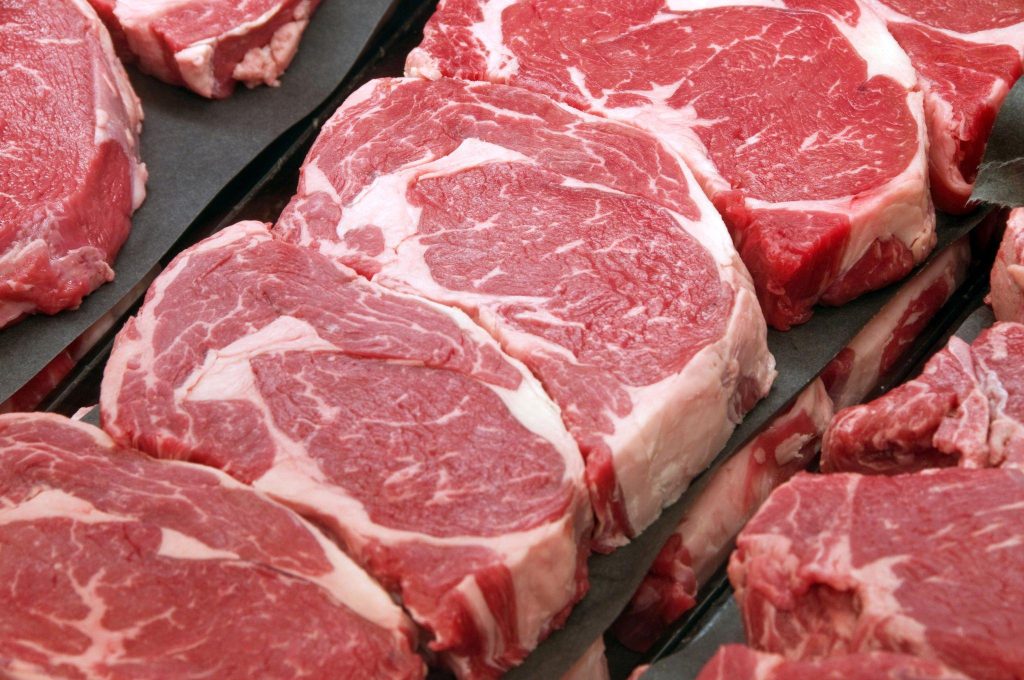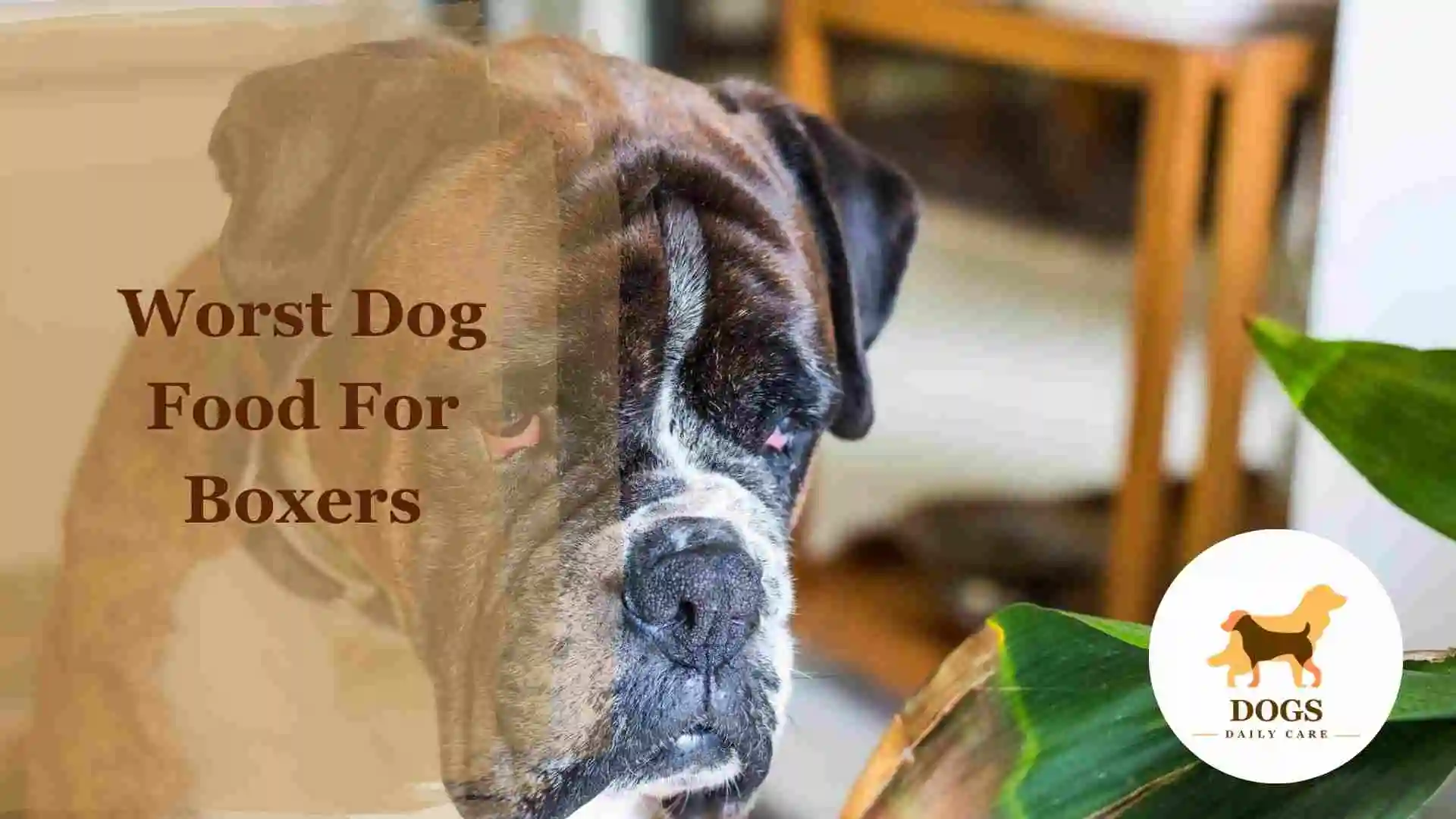Worst Dog Food For Boxers – All You Need To Know
Choosing the right dog food for your Boxer isn’t just a matter of taste; it’s essential for their health and wellbeing. Boxers, known for their playful spirit and muscular build, have specific dietary needs that, if not met, can lead to serious health issues. Many dog food brands market themselves as ‘complete and balanced’, but not all dog foods are created equal, especially when it comes to this unique breed. It’s crucial for Boxer owners to be aware of the ingredients and types of food that can do more harm than good to their beloved pets.
Unfortunately, certain common ingredients found in dog foods can be detrimental to your Boxer’s health, exacerbating issues like heart problems and allergies, which Boxers are prone to. In the following sections, we’ll delve into the specifics of what makes certain dog foods a poor choice for your Boxer. This guide aims to arm you with the knowledge to make informed decisions, ensuring your Boxer stays healthy, happy, and energetic.
Understanding Boxers’ Nutritional Needs
Boxers are not just any dog breed; they’re unique in both spirit and body. This means their diet needs to be tailored to match. Boxers are energetic and muscular, requiring a diet rich in proteins to maintain their strength. However, it’s not just about the quantity of protein, but also the quality. High-quality proteins from sources like chicken, beef, or fish are vital for their muscle health.
Carbohydrates are also important, but they need to be the right kind. Complex carbs like sweet potatoes or brown rice provide energy without the risk of weight gain. Simple carbs, like those in many commercial dog foods, can lead to obesity in Boxers. This breed needs a balanced diet, not just a filling one.
Fats are another key element. Healthy fats from sources like fish oil can support a Boxer’s shiny coat and overall health. But too much fat, or the wrong kind, can be harmful. Boxers require a careful balance to stay in top form.
Finally, Boxers need vitamins and minerals, just like we do. These nutrients support everything from their bones to their immune system. A lack of proper vitamins can lead to health issues down the line. It’s important to choose dog foods that are fortified with essential vitamins and minerals, tailored for a Boxer’s needs.
Common Ingredients to Avoid in Boxer Dog Food
Artificial Preservatives (BHA, BHT, Ethoxyquin)
These chemicals are used to extend the shelf life of dog food. BHA (Butylated Hydroxyanisole) and BHT (Butylated Hydroxytoluene) are synthetic antioxidants, while ethoxyquin is a preservative often used in fish-based foods. Although approved for use, there’s ongoing debate about their long-term effects on dog health. They have been linked to potential health risks, including cancer. Instead, look for natural preservatives like Vitamin E (tocopherol) or Vitamin C (ascorbic acid) in dog foods.
Artificial Colors and Flavors
These additives make dog food more appealing visually and tastefully to humans, but they have no nutritional benefit for dogs. Worse, artificial colors and flavors can trigger allergies in Boxers, leading to symptoms like skin irritation or gastrointestinal upset. Dogs aren’t concerned with the color of their food; what matters is the nutritional content. Avoid foods with artificial dyes (like Red 40, Yellow 5, and Blue 2) and synthetic flavors.
Filler Grains (Corn and Soy)
Corn and soy are inexpensive grains used to bulk up dog food but offer minimal nutritional value for Boxers. These fillers can be hard for dogs to digest and may lead to bloating, gas, and discomfort. Boxers with grain sensitivities can particularly suffer from these ingredients. Instead, seek out dog foods with healthier grain options like brown rice or barley, or opt for grain-free formulas that use sweet potatoes or peas as a carbohydrate source.
Meat By-Products
Meat by-products are the non-muscle parts of animals, which can include organs and bones. While not inherently harmful, the nutritional quality of by-products is often lower compared to whole meats. The source of these by-products can be unclear, and they may not provide the high-quality protein that Boxers require for muscle development and maintenance. It’s better to choose dog foods that specify whole meat sources like chicken, beef, or lamb.
Types of Dog Food That Are Bad for Boxers
Generic Dry Dog Food

Generic or budget dry dog foods often use low-quality ingredients, including fillers like corn and wheat, which provide little nutritional value to Boxers. These foods might also lack essential proteins and fats needed for a Boxer’s active lifestyle. Additionally, the low moisture content in many dry foods can be a concern, as Boxers need adequate hydration for their overall health. Choosing a premium dry food with high-quality ingredients and balanced nutrition is crucial for Boxers.
Canned Dog Food

While canned dog food offers higher moisture content, which is beneficial, it often contains high levels of sodium and preservatives, which are not ideal for Boxers, particularly those with heart conditions or hypertension. Excessive sodium can lead to dehydration and other health issues. Owners should look for canned foods with low sodium content and no harmful additives, ensuring the main ingredients are wholesome and nutritious.
Raw Diets

Raw diets, consisting of raw meat, bones, fruits, and vegetables, have gained popularity. However, they pose risks like exposure to pathogens like Salmonella and E. coli, which can be harmful to both dogs and their owners. Additionally, ensuring a nutritionally balanced raw diet is complex and requires precise knowledge of canine nutrition. Boxers need a well-balanced diet, and achieving this with a raw diet can be challenging without expert guidance.
Boutique Dog Foods

Boutique dog foods, often marketed as premium or artisanal, may use unconventional ingredients or protein sources like kangaroo, bison, or duck. While these might seem nutritious, some boutique foods lack rigorous scientific research and may not provide a balanced diet suitable for Boxers. It’s essential to choose dog foods that are well-researched and meet the nutritional needs of Boxers, as recommended by veterinarians.
Reading and Understanding Dog Food Labels
Navigating dog food labels can be tricky, but it’s key to choosing the best for your Boxer. Let’s break down what to look for. First, check the ingredient list. Ingredients are listed by weight. Look for whole meats or meat meals, like chicken or beef, at the top of the list. These provide the high-quality protein your Boxer needs.
Watch out for vague terms like ‘meat by-products’ or ‘animal fat’. These can be from any source and often aren’t the best quality. You want clear, specific ingredients. Also, be cautious of too many grain or vegetable by-products listed high up. These are often fillers, not giving your Boxer the nutrition they really need.
Next, look at the guaranteed analysis. This shows the minimum percentages of protein and fat, and the maximum percentages of fiber and moisture. Boxers need a diet high in protein and moderate in fat. Too much fiber can be a sign of high filler content.
Lastly, check for a statement from the Association of American Feed Control Officials (AAFCO). This indicates the food meets basic nutritional standards. However, remember, AAFCO standards are a starting point, not the gold standard. Your Boxer might need more specific nutrition than what’s just ‘adequate’.
Frequently Asked Questions (FAQs)
1. What are the best protein sources for Boxers?
Boxers thrive on high-quality proteins. Look for dog foods that list whole meats like chicken, beef, or fish as the primary ingredients. These proteins support muscle health and energy levels in Boxers.
2. How can I tell if my Boxer is allergic to their food?
Common signs of food allergies in Boxers include itching, skin rashes, ear infections, and digestive upset. If you notice these symptoms, consult your vet and consider a hypoallergenic diet.
3. Are grain-free diets good for Boxers?
While some Boxers do well on grain-free diets, it’s not ideal for all. It’s essential to ensure they still get balanced nutrition. Consult with a vet to determine if a grain-free diet is suitable for your Boxer.
4. How often should I change my Boxer’s diet?
Sudden changes in diet can upset a Boxer’s stomach. It’s best to change diets gradually over several days. If you’re switching due to health concerns, consult your vet for the best approach.
5. Can Boxers eat a vegetarian diet?
Boxers, as carnivores, do best with meat-based proteins. A vegetarian diet might not provide all the nutrients they need. If considering this diet for health or ethical reasons, consult with a vet to ensure your Boxer’s nutritional needs are met.
Conclusion
In summary, the journey to finding the right diet for your Boxer is crucial for their health and happiness. We’ve explored the types of dog food to avoid and the harmful ingredients that can lurk in many commercial products. Remember, the best diet for your Boxer is one that’s rich in high-quality proteins, free from harmful additives, and balanced with the right nutrients. Your vigilance in reading labels and choosing the right food can make a significant difference in your Boxer’s health and longevity.
As a Boxer owner, your role is not just to love and care for your pet but to be informed and proactive about their diet. Every Boxer is unique, and what works for one may not work for another. Stay in touch with your vet, keep an eye on your dog’s health, and always be ready to adjust their diet as needed. By doing so, you’ll ensure that your Boxer remains a happy, healthy, and energetic companion for years to come.


